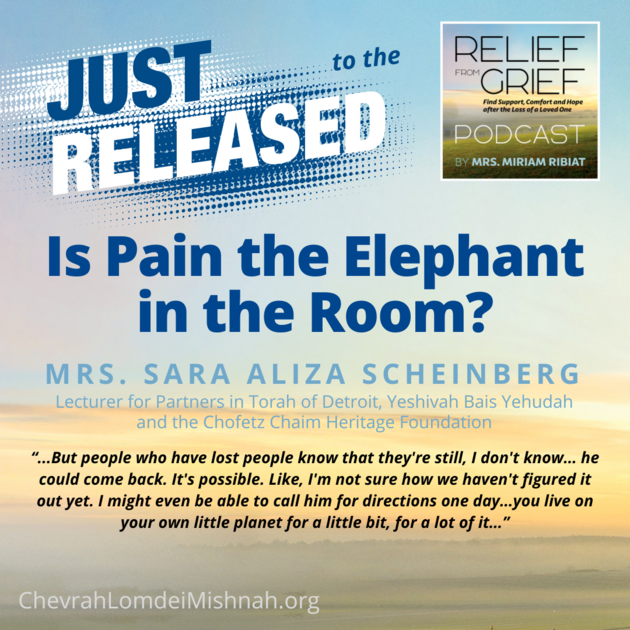
What is it like to name a baby after a deceased parent?
If the deceased went by an English name, should the child be called that name even though it isn’t typical or accepted in some circles today?
What is it like to bury a loved one? How do I know they’re not cold, wet or lonely?
What if I feel happy at a simchah and everyone else feels so sad that the deceased isn’t here? Should I also be feeling sad?
What should I say to people who make hurtful comments?
Where does grief in psychology meet Torah hashkafah?
How should I work on my emunah when it has been shaken so badly?
These are some questions that frequently arise when a person is grieving. Society today portrays pain as bad. We’re made to feel that we should look away – pretend it doesn’t exist. It seems to be the easier way. But not only doesn’t that make the pain disappear, it only intensifies it.
In this podcast, Mrs. Sara Aliza Scheinberg poignantly shares her experiences and perspective, offering the very important message that one should not let their pain be the elephant in the room. It doesn’t help, it only harms. And she knows because she has experienced enough of her own pain.
Sara Aliza is a dynamic, articulate and relatable speaker. People are drawn to her charisma and sensitivity. She uses her talent to share her experience with loss so that even those who never underwent this challenge can get an insider’s glimpse. She addresses the above questions and many more.
As someone once told Sara Aliza, “You can’t be on the other side of the forest without walking through it.” She has walked through it, cried through it, talked through it, struggled through it and made it to the other side.
Her perspective is invaluable.
To listen to the podcast, click here or it can be found on any podcast hosting site.
 Previous
Previous

